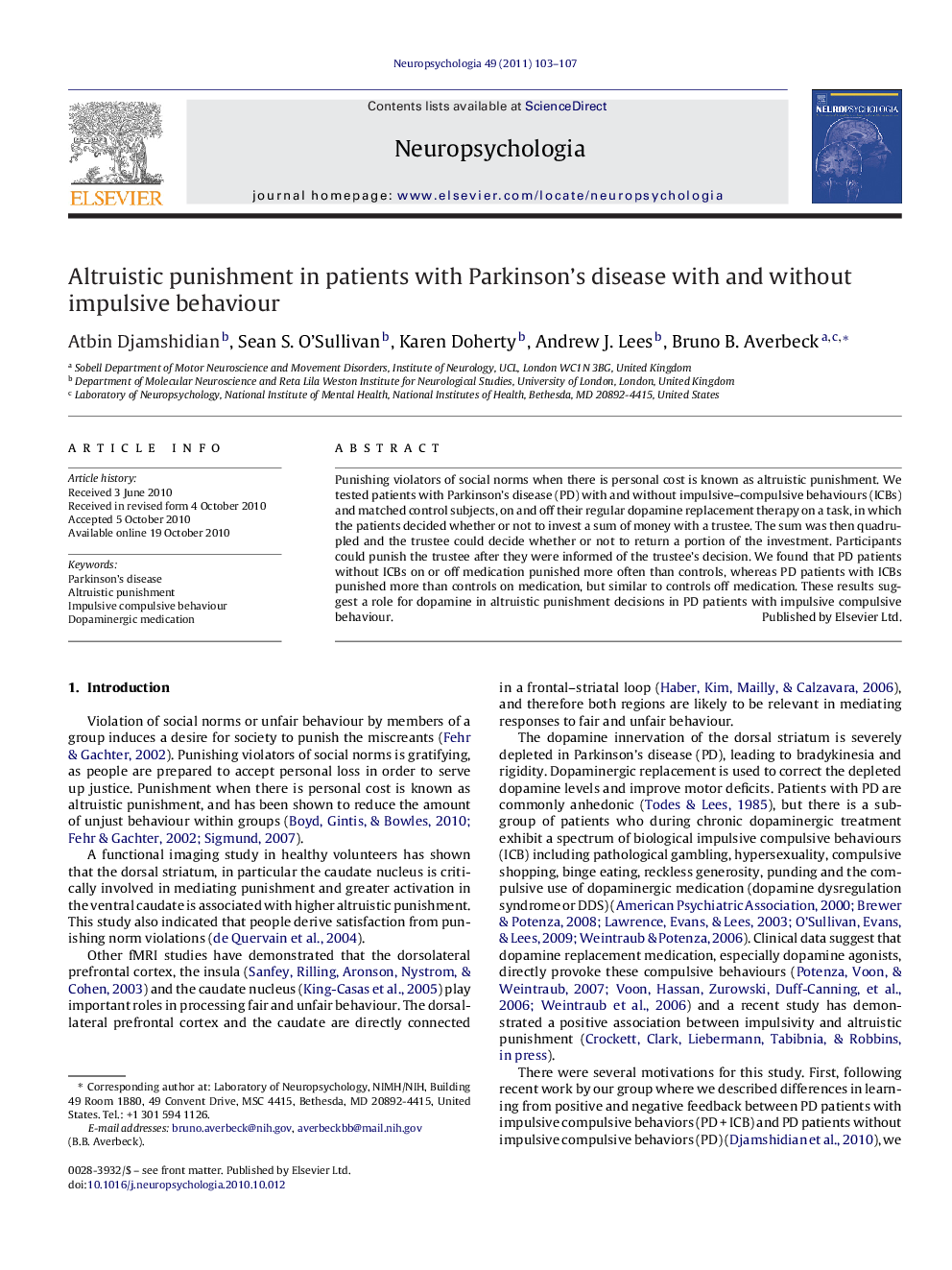| Article ID | Journal | Published Year | Pages | File Type |
|---|---|---|---|---|
| 944961 | Neuropsychologia | 2011 | 5 Pages |
Punishing violators of social norms when there is personal cost is known as altruistic punishment. We tested patients with Parkinson's disease (PD) with and without impulsive–compulsive behaviours (ICBs) and matched control subjects, on and off their regular dopamine replacement therapy on a task, in which the patients decided whether or not to invest a sum of money with a trustee. The sum was then quadrupled and the trustee could decide whether or not to return a portion of the investment. Participants could punish the trustee after they were informed of the trustee's decision. We found that PD patients without ICBs on or off medication punished more often than controls, whereas PD patients with ICBs punished more than controls on medication, but similar to controls off medication. These results suggest a role for dopamine in altruistic punishment decisions in PD patients with impulsive compulsive behaviour.
Research highlights▶ We assessed the effects of dopamine medication and a diagnosis of compulsive behaviour on altruistic punishment in the trust task. ▶ Patient with PD and compulsive behaviours punished more than controls on medication, but the same as controls off medication. ▶ Patients with PD without compulsive behaviours punished more than controls both off and on medication. ▶ Dopamine medication and a compulsive behavioural profile interact to affect how much participants altruistically punished when trustees did not reciprocate investments.
